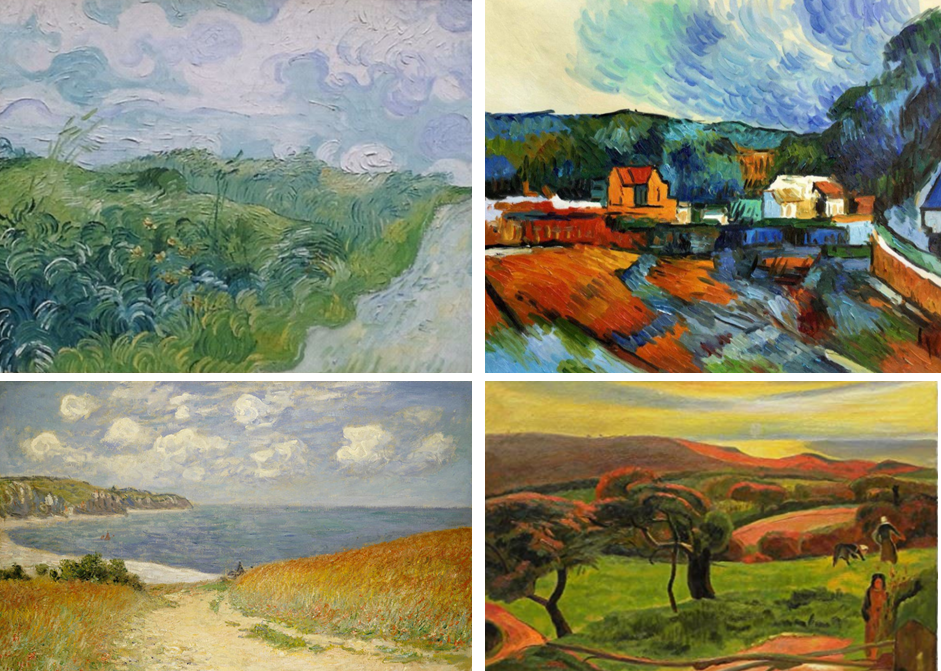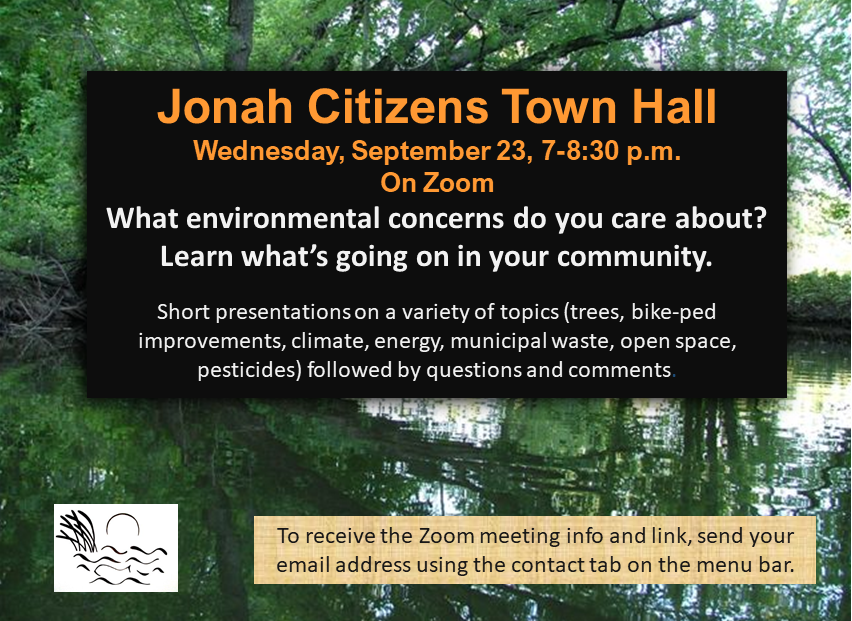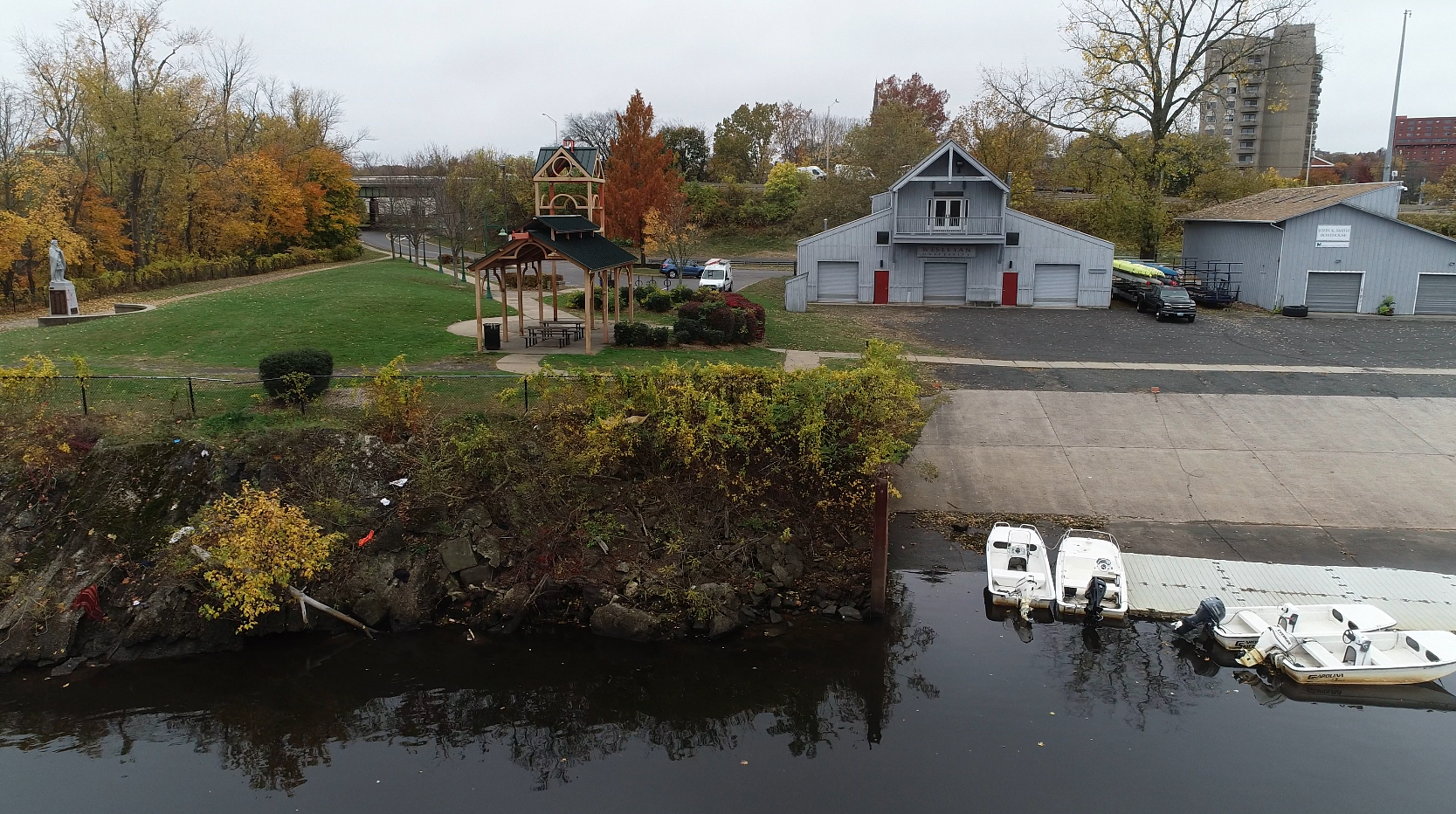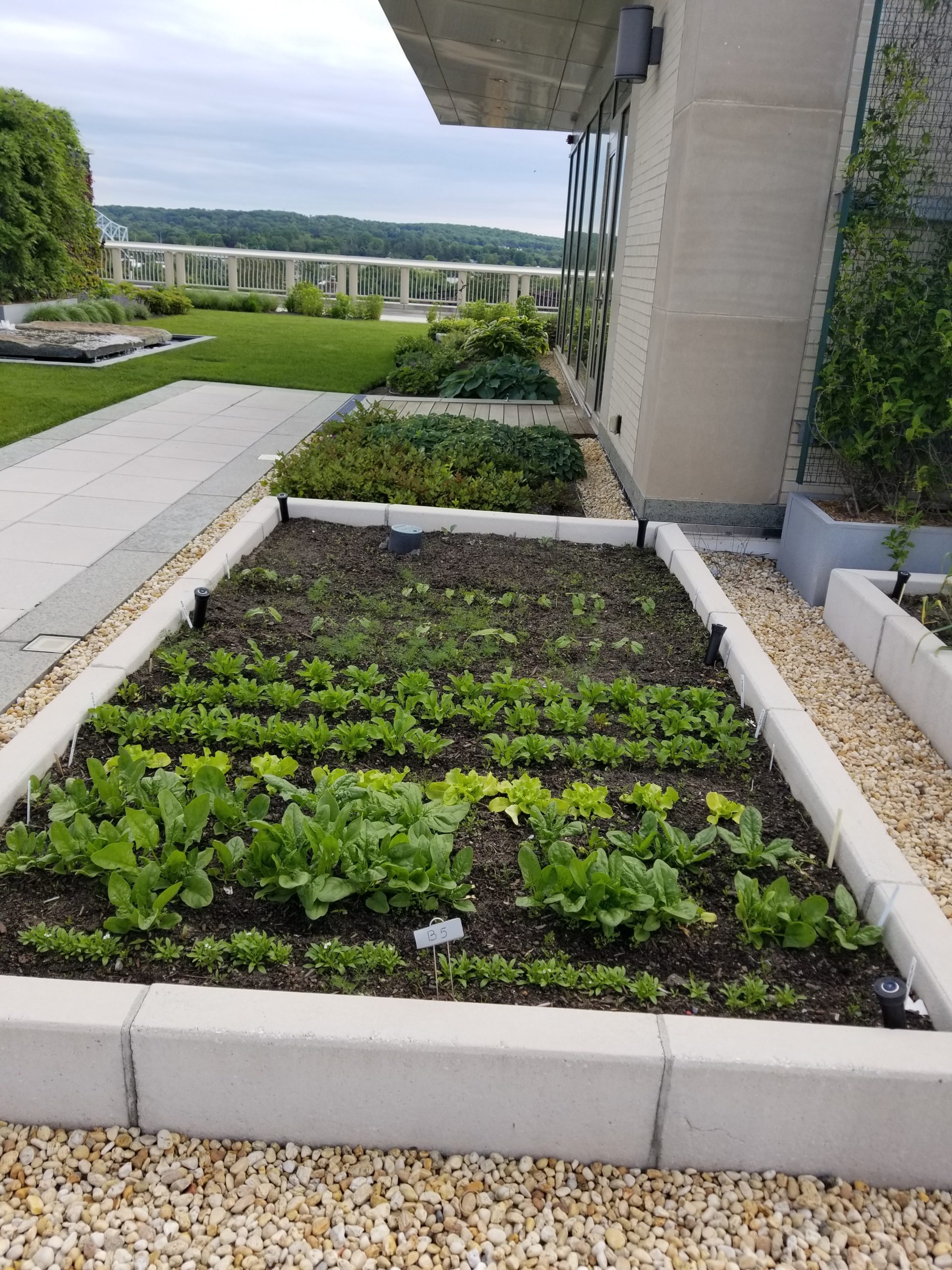
Answers, clockwise from upper left:
Green Wheat Fields, by Vincent Van Gogh; Uferlandschaft, by Paul Cezanne; Breton Landscape by Paul Gauguin; and Path in the Wheat at Pourville, by Claude Monet.


Answers, clockwise from upper left:
Green Wheat Fields, by Vincent Van Gogh; Uferlandschaft, by Paul Cezanne; Breton Landscape by Paul Gauguin; and Path in the Wheat at Pourville, by Claude Monet.

As you may have noticed, our national government has utterly failed to provide leadership in the face of the global climate crisis. Once we get through the Covid-19 pandemic — another area of failed leadership — we will still face this even more threatening, though slower moving, crisis. Regardless of what you hear on the evening news lately, climate change has not been put on pause. What are concerned, climate-conscious citizens to do? In addition to reducing our individual carbon footprints, we need to take political action at the local level. Continue reading
By John Hall
As part of the City’s Riverfront Revitalization efforts, excavation work has begun on the Boathouse property and Columbus Point along Harbor Drive. This work includes remediation of contamination, regrading of Columbus point, bank stabilization along the river, and creating better access to the riverfront for rowers and the community. The project is being funded through a State of Connecticut Urban Action Program Grant provided by the Connecticut Department of Economic and Community Development.

Columbus Point (left) and Boathouses (right) prior to excavation. Notice erosion of bank with broken concrete exposed.
The City has retained Tighe & Bond, Inc. a local engineering firm to provide design and oversight services for the project. Amy Vaillancourt a Licensed Environmental Professional and the Senior Project Manager provided me with some history and project details. Continue reading
 It is that time in the season when you may have more cucumbers and zucchini then you can eat or put up. If you find yourself in this situation, consider donating your excess produce to our local food pantries and put it to good use. Details for Middletown and Portland are below:
It is that time in the season when you may have more cucumbers and zucchini then you can eat or put up. If you find yourself in this situation, consider donating your excess produce to our local food pantries and put it to good use. Details for Middletown and Portland are below:
Middletown
Amazing Grace Food Pantry, 16 Stack Street, Middletown, CT
Drop off on Wednesdays and Fridays 9 am – 5 pm
Bring produce around back
Questions? Call Kathleen Kelly at 860-347-3222
Portland
Portland Food Bank, Waverly Center – 7 Waverly Avenue, Portland, CT
Drop off on Mondays 2:30 pm – 3:30 pm
Bring produce to Food Bank, door at the bottom of ramp. Please wear a mask.
Questions? Call Ruth Maio at 860 342-0527
 For the past 4 years, the Jonah Center has organized work parties of 20-30 paddlers each to remove invasive water chestnut (trapa natans) from the Floating Meadows, the 1000 acre freshwater tidal marshland formed by the Mattabesset and Coginchaug Rivers.
For the past 4 years, the Jonah Center has organized work parties of 20-30 paddlers each to remove invasive water chestnut (trapa natans) from the Floating Meadows, the 1000 acre freshwater tidal marshland formed by the Mattabesset and Coginchaug Rivers.
The map above indicates the primary location of plants in the previous few years. This year, plants are visible upstream from this area, where the “Mattabesset River” label is seen, and still father upstream from there, where the river turns sharply to the right at the top of the map. These are the areas of primary focus.
 Due to the pandemic, the Jonah Center has not organized large work parties. We have encouraged paddlers to go out solo or in small family groups. Bring a large plastic bag, gently pull up plants by the roots, place them in the bag, and deposit the plants near the informational kiosk in the boat launch parking area.
Due to the pandemic, the Jonah Center has not organized large work parties. We have encouraged paddlers to go out solo or in small family groups. Bring a large plastic bag, gently pull up plants by the roots, place them in the bag, and deposit the plants near the informational kiosk in the boat launch parking area.
If you are able to pull more plants than you can carry, please place them on one of the floating drying rafts anchored in the area. The plants will drain, dry out in the sun, lose most of their weight and volume, and become easier for others to bring back to the launch site by motor boat. We will ask the Public Works Department to dispose of them when plants have accumulated. Please contact us if you have gone out to remove plants and let us know what you have found in terms of location and number of plants. We will all do the best that we can.

This plant drying raft was designed and constructed by Jonah volunteer Mike Thomas.
*pronounced Es-SPAHL-Yay
 I’ve often wondered about espaliered trees, and they even figured in a short piece of fiction I once wrote. Espalier is the art of training dwarf trees to grow in a flat plane along a wall, fence, or trellis. They create an atmosphere of mystery, wonder, and an evocation of some kind of Garden of Eden. I’ve stopped to admire them at botanical gardens and occasionally at Ballek’s nursery in East Haddam. Because we see them in famous gardens, we tend to think of them as expensive or unattainable, as something no longer possible. As you will learn, you can easily grow an espaliered fruit tree for under $20 (under $30 if you choose a tree with four different types of apple or pear bearing branches) but you’ll need some simple hardware that might cost another $15. Or, you could just use bamboo, the way growers do. You will likely have fruit much sooner. I never bought an espaliered fruit tree from a nursery, but I did buy a very tiny birch that Nancy Ballek had pruned on dwarf rootstock that was highly contorted. Sixteen years later it is still 30” tall and about 40” wide. That demonstrates the power of dwarf rootstock. And that is the secret of espalier. Continue reading
I’ve often wondered about espaliered trees, and they even figured in a short piece of fiction I once wrote. Espalier is the art of training dwarf trees to grow in a flat plane along a wall, fence, or trellis. They create an atmosphere of mystery, wonder, and an evocation of some kind of Garden of Eden. I’ve stopped to admire them at botanical gardens and occasionally at Ballek’s nursery in East Haddam. Because we see them in famous gardens, we tend to think of them as expensive or unattainable, as something no longer possible. As you will learn, you can easily grow an espaliered fruit tree for under $20 (under $30 if you choose a tree with four different types of apple or pear bearing branches) but you’ll need some simple hardware that might cost another $15. Or, you could just use bamboo, the way growers do. You will likely have fruit much sooner. I never bought an espaliered fruit tree from a nursery, but I did buy a very tiny birch that Nancy Ballek had pruned on dwarf rootstock that was highly contorted. Sixteen years later it is still 30” tall and about 40” wide. That demonstrates the power of dwarf rootstock. And that is the secret of espalier. Continue reading
 Portland’s Air Line Trail Steering Committee has worked with private property owners to define a route that would extend the trail going west from YMCA Camp Ingersoll to Route 17. The committee is in the process of requesting formal easements from these property owners. This phase 2 segment will then require state or federal funding for final design work and construction. The proposed route (shown here) makes various turns that deviate from the original Air Line Trail right-of-way, due to sand and gravel excavations underway by Butler Construction. Completion of this segment will greatly advance the ultimate goal of connecting the Air Line Trail with Portland’s town center and the Arrigoni Bridge.
Portland’s Air Line Trail Steering Committee has worked with private property owners to define a route that would extend the trail going west from YMCA Camp Ingersoll to Route 17. The committee is in the process of requesting formal easements from these property owners. This phase 2 segment will then require state or federal funding for final design work and construction. The proposed route (shown here) makes various turns that deviate from the original Air Line Trail right-of-way, due to sand and gravel excavations underway by Butler Construction. Completion of this segment will greatly advance the ultimate goal of connecting the Air Line Trail with Portland’s town center and the Arrigoni Bridge.
The Jonah Center will help inform the public if and when emails or other expressions of support will be helpful.
In the meantime, the Air Line Trail Committee in East Hampton is attempting to bring the State of Connecticut and Eversource to an agreement regarding the 1200 foot gap that currently prevents riders from using the trail continuously from Portland to East Hampton and beyond. Utility poles need to be relocated in this section so that a boardwalk can be constructed over running water.


The Jonah Center’s campaign to add at least $50,000 to the City of Middletown’s tree planting budget has been successful. The new budget amount for tree planting is $58,500.
We wish to thank Mayor Ben Florsheim, Majority Leader Gene Nocera, Minority Leader Phil Pessina, and all members of the Common Council who supported this increase. We are delighted that Middletown’s elected leaders recognize the importance of reversing the loss of approximately 100 trees each year.
This successful campaign is proof that citizens can make a difference if we are organized and act in unison. Many thanks and congratulations to all who wrote letters to the Mayor and Common Council. “Replace Our Trees” was a joint effort by the Jonah Center and the Urban Forestry Commission of Middletown.
 The Jonah Center wishes to thank the 97 individuals and organizations who contributed to our successful Replace Our Trees Campaign in Middletown and Portland. Click on the following link to view the Tree Fund Donors. Including the original financial commitment of the Jonah Center itself, individual donations, and matching funds from Sustainable CT, the Jonah Center’s Tree Fund now has $20,000 available for planting — $8,000 for Portland and $12,000 for Middletown, based on the residence of the donor. Both municipalities have lost hundreds of trees recently due to drought, pests, and disease — sources of tree stress related to climate change. Tree planting and maintenance are important ways to mitigate the effects of climate change because large, older trees absorb and store carbon from the atmosphere. Continue reading
The Jonah Center wishes to thank the 97 individuals and organizations who contributed to our successful Replace Our Trees Campaign in Middletown and Portland. Click on the following link to view the Tree Fund Donors. Including the original financial commitment of the Jonah Center itself, individual donations, and matching funds from Sustainable CT, the Jonah Center’s Tree Fund now has $20,000 available for planting — $8,000 for Portland and $12,000 for Middletown, based on the residence of the donor. Both municipalities have lost hundreds of trees recently due to drought, pests, and disease — sources of tree stress related to climate change. Tree planting and maintenance are important ways to mitigate the effects of climate change because large, older trees absorb and store carbon from the atmosphere. Continue reading
 Due to the pandemic and related economic distress, the State of Connecticut’s Energy Efficiency Board has dramatically increased the financial incentives for home insulation projects when completed by Home Energy Solutions contractors. Even without any incentives, insulation offers the greatest return on investment of any energy conservation measure a homeowner can make.
Due to the pandemic and related economic distress, the State of Connecticut’s Energy Efficiency Board has dramatically increased the financial incentives for home insulation projects when completed by Home Energy Solutions contractors. Even without any incentives, insulation offers the greatest return on investment of any energy conservation measure a homeowner can make.
The new insulation rebate of $2.20 per sq. ft. means that many insulation projects are now virtually free. This is an increase from the $1.00 per sq. ft. for attics and walls and $.50 per sq. ft. for basement ceilings. This incentive rate applies for an attic that has less than R19, as well as walls and basement ceilings with no insulation when those are considered part of the building envelope. Continue reading
Submitted by Jane Harris
 The Middletown Garden Club has begun its eighth season of gardening on the rooftop of the Community Health Center. For the past seven years, our partner has been MARC, but Covid-19 has put that relationship on hold indefinitely. With approximately 500 square feet of irrigated raised beds, the rooftop garden has been highly productive. The carefully engineered soil and water-recapture system work to make the beds ideal for vegetable and root crops. Each year, we “open up” the gardens by removing any weeds that may have germinated over the winter, and begin to plan a new lay-out for the crops. We rotate plant locations to avoid any possibility of disease build-up in beds, especially where tomatoes are grown. Continue reading
The Middletown Garden Club has begun its eighth season of gardening on the rooftop of the Community Health Center. For the past seven years, our partner has been MARC, but Covid-19 has put that relationship on hold indefinitely. With approximately 500 square feet of irrigated raised beds, the rooftop garden has been highly productive. The carefully engineered soil and water-recapture system work to make the beds ideal for vegetable and root crops. Each year, we “open up” the gardens by removing any weeds that may have germinated over the winter, and begin to plan a new lay-out for the crops. We rotate plant locations to avoid any possibility of disease build-up in beds, especially where tomatoes are grown. Continue reading